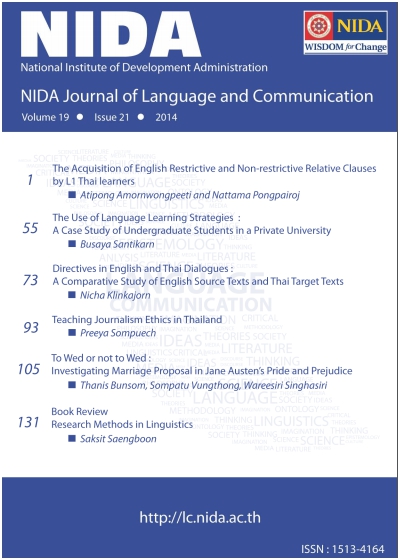Teaching Journalism Ethics in Thailand
Keywords:
Mass Media Professional Ethics, Case-Based Learning, Reflection, Ethical Decision MakingAbstract
The objectives of this study were to discern lecturers’ and students’ opinions towards current journalism ethics teaching and present a new approach to develop ethical reflection and decision making for journalism undergraduate students. Data were collected through questionnaires and opinion samples from Thai Rajabhat university lecturers and undergraduate students in the faculty of Communication Arts.
The findings were as follows:
1. The lecturers and students indicated that the present status of journalism ethics teaching encourages students to be brave in order to think, to do and to express themselves, especially in a reasonable manner. However, only minimal learning activities are being used that integrate professional ethics. In addition, only minimal case studies are used to prepare learners to face the realities creating current circumstances.
2. The present status of students’ ability to ethically reflect on and make decisions about professional journalism, that is, students’ ability to search and retrieve data for lessons, clear problem identification and problem solving alternatives, are at a moderate level. This should be developed to a higher level.
Downloads
How to Cite
Issue
Section
License
By submitting a manuscript, the author transfers the copyright for the article to School of Language and Communication, National Institute of Development Administration (NIDA), if and when the manuscript is accepted for publication. Though the journal is an open-access, reproduction of any material published in NIDA Journal of Language and Communication for non-personal and/or commercial purpose requires a written permission from School of Language and Communication, National Institute of Development Administration (NIDA).






